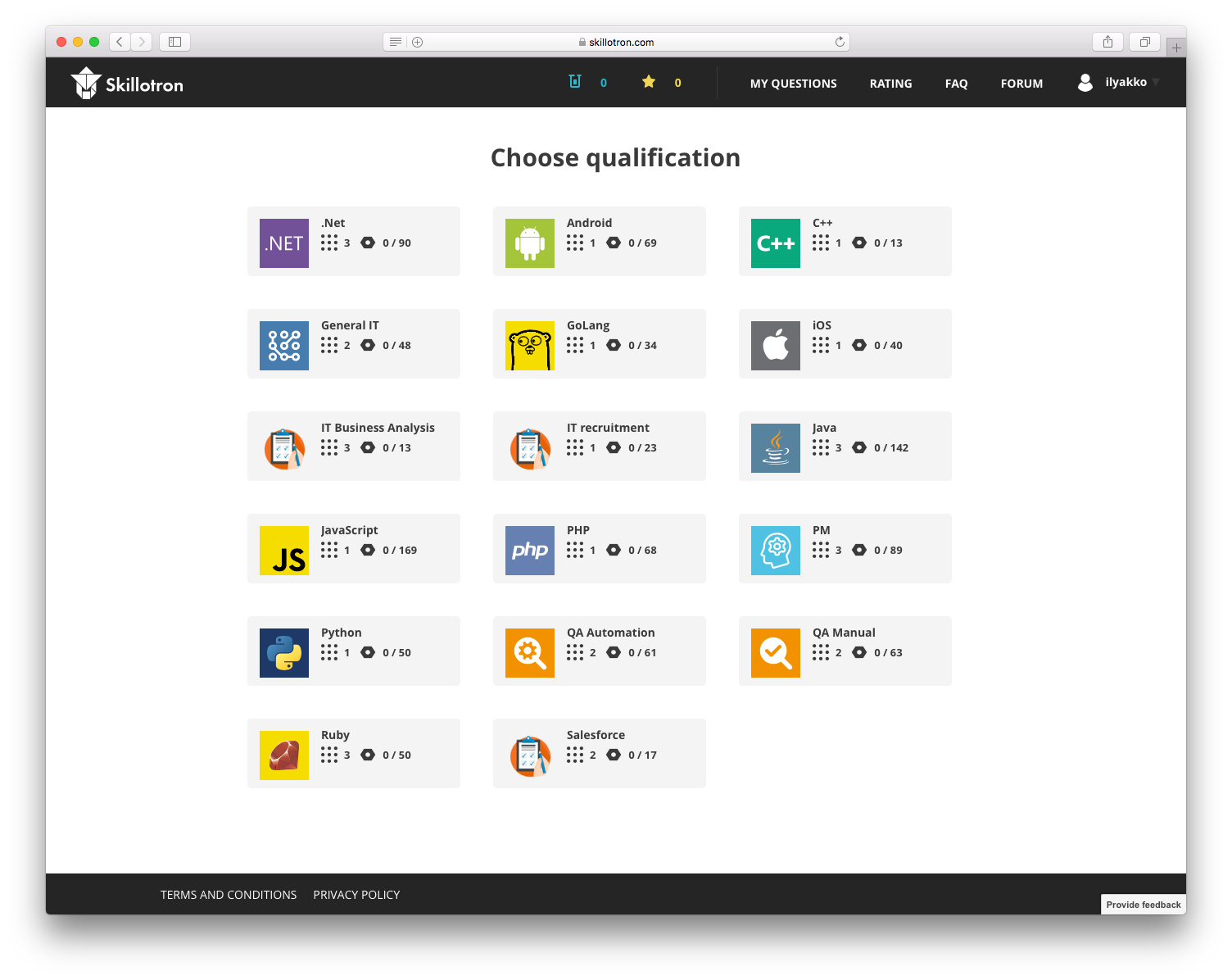DataArt launched a gaming knowledge self-test platform for IT specialists

Daniel Lurie, Editor-in-Chief, DataArt.
For twenty years, DataArt has been developing IT solutions for clients from the financial, healthcare, tourism and other major industries. We never let out our own products - we feared a possible conflict of interest. But recently we launched our own Skillotron gaming platform. It all started with the fact that two, at first glance, unrelated problems appeared in DataArt.
')
The first is the assessment of the professional level of colleagues. Over the past ten years, we have grown from 400 people to 2500, and people continue to come to us, DataArt is already working in 10 countries and 20 cities around the world. Like any organization, we, of course, have a qualification assessment system for recruitment. It is more difficult to assess those who have been working with us for years and are developing all the time. Partly for this, the technology communities inside DataArt arrange "self-checks" - voluntary exams or olympiads, in which everyone can adequately evaluate themselves and understand what else he needs to pull in which direction to develop. This process is rather laborious - it took a lot of time and effort of the most experienced colleagues to invent tasks, organize a self-check and check the results. The developers wondered how to simplify the life of themselves and others.
The second problem was that the 20th anniversary of DataArt was approaching, and a new website had to be made. We wanted to create something non-standard that could distinguish it from other corporate sites and tell something about us, for example, a test game dedicated to IT. The site team decided to discuss the idea with the developers. It turned out that they had long thought about something similar.
Idea for a million hours
The developers wanted to make a test based on a “skill tree”. Such a thing would allow us to evaluate not just the abstract level of Java, but separately assess how much people know Core libraries, separately - Ui libraries, and so on. The site team thought about a lighter genre, a casual game - so that each visitor could spend a couple of minutes on it, have fun and send a link to friends. As a result, the developers managed to prove that the simple test was not interesting for the engineers, although they agreed that the test should not be too serious.
The development of the first public version took six months. The game could certainly be done faster, if DataArt were a grocery company. Alas, our main strength always goes to client projects, so it was almost impossible to assemble a strong team and protect it from the constant encroachments of commercial projects.
To come up with the format of the game, we studied similar systems - from serious certification platforms to driving school exam and language learning applications. As a result, we have come to such rules. Each game session consists of 10 questions on one of the technologies. In case the player answers correctly at least 8 out of 10, he moves to the next level with more complex tasks. For the correct answers and when moving to each next level points are added, and in the course of the game, participants receive bonuses.

The other day, the release of the first version of Skillotron . It contains a little more than a thousand questions, which are divided into 16 categories and several dozen subcategories, from programming languages to project management technologies and IT history.
Skillotron was created as a system that should support the community - those who need it and are interested. Participants can not only answer other people's questions, but also ask their own. They moderate all content on the site. The number and quality of questions is in the hands of the community, and their complexity is considered by the algorithm.
About half of DataArt developers have already played Skillotron , each an average of 4 times. The return of users is 76%, and the average session duration is 9 minutes 20 seconds, a fairly good indicator.
Third-party users are attracted to the project gradually, without massive advertising. We will look at the statistics, receive feedback, improve what needs to be improved and move on. It is important not to interfere with the community, you need to follow people. The main goal of the first stage is to debug all the mechanisms that will allow players to convert into authors of questions. They are the most valuable.
What's next
As with any project built around the community, we don’t really know if Skillotron will take off, and if it takes off, which way will it take. However, we already have ideas on how to develop the platform in the future.
Skillotron can be turned into a tool that makes it possible not only to evaluate your current level, but also to increase it - in case of incorrect answers, it can suggest what you should read to improve your results. We are thinking of using the platform for conducting remote interviews: the candidate shares the screen and answers questions, commenting on his decisions live. Skillotron can be useful in order to match customer requests and our assessments of colleagues' professional skills - that is, for example, under middle developer both we and our customers understand the same thing.
Now Skillotron is a classic test: for any question you need to choose the right answers. Soon we will begin to add questions, the answer to which should be the code written by the user. This code will be executed in a container and checked by tests. Such tasks and compose more interesting, and respond to them more difficult.
In the process of growth and improvement of Skillotron, it is important not to lose the principles on which the platform was built. It must grow and develop organically. We still keep the program code with us, but if everything goes well, then it is quite possible that we will post it in open source.
Source: https://habr.com/ru/post/373711/
All Articles